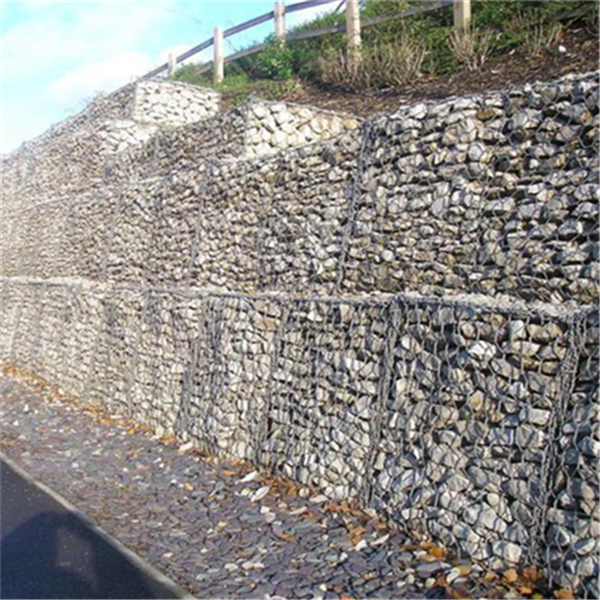Dec . 05, 2024 03:31 Back to list
wholesale gabion basket lacing wire
Understanding Wholesale Gabion Basket Lacing Wire A Comprehensive Guide
Gabion baskets have become a popular choice for erosion control, landscaping, and civil engineering projects across the globe. These wire mesh containers, typically filled with stones, are highly versatile and effective at stabilizing soil structures, creating decorative features, and providing flood control. An essential component of these gabion baskets is the lacing wire, which is often sourced wholesale for bulk projects. This article delves into the significance of gabion basket lacing wire, its specifications, types, and benefits, along with insight into purchasing wholesale.
The Role of Lacing Wire in Gabion Baskets
Lacing wire plays a pivotal role in maintaining the integrity and strength of gabion baskets. It is used to tie the edges of gabion panels together, ensuring that the baskets maintain their shape and stability after being filled with stones or other materials. The lacing wire prevents the stones from spilling out and helps the baskets withstand environmental pressures such as heavy rainfall or strong winds.
Specifications and Types of Lacing Wire
Lacing wire typically comes in various specifications, allowing for adaptability to different project requirements. Common materials used for lacing wire include galvanized steel and PVC-coated wire. Galvanized wire provides rust resistance and durability, making it ideal for outdoor use where it may be exposed to moisture.
The most commonly used gauges for lacing wire in gabion applications range from 12 to 16. The choice of gauge often depends on the specific design requirements and the size of the gabion baskets being used. Thicker wire is generally more robust and suitable for larger or more structurally demanding applications.
Additionally, lacing wire can be found in rolls or spools, making it easier to manage during installation. When purchasing wholesale, buyers can often choose between various lengths and styles of lacing wire to best suit their project’s needs.
Advantages of Using Wholesale Lacing Wire
Opting for wholesale lacing wire presents numerous advantages for contractors, landscapers, and engineers involved in gabion basket installations. Here are some notable benefits
1. Cost Efficiency Buying lacing wire in bulk significantly reduces the unit price. This is especially important for large projects where the quantity of wire needed can become substantial.
wholesale gabion basket lacing wire

2. Quality Assurance Wholesale suppliers often provide high-quality materials, as they rely on maintaining a reputable relationship with contractors. Buying in bulk allows for a consistent product that meets industry standards.
3. Convenience Suppliers of wholesale lacing wire can often deliver directly to the job site, streamlining the procurement process. This saves time and effort that would otherwise be spent on multiple trips to retail suppliers.
4. Variety and Customization Wholesale suppliers often provide a wide range of options, allowing purchasers to find the specific type of lacing wire that best fits their project requirements. This might include different thicknesses, lengths, or coatings.
How to Purchase Wholesale Lacing Wire
When looking to purchase wholesale lacing wire, consider the following steps
- Research Suppliers Look for reputable suppliers specializing in gabion products. Read reviews and seek recommendations from colleagues in the industry.
- Compare Prices Get quotes from multiple suppliers to find the best deal. Be sure to consider shipping costs and delivery times.
- Check Specifications Ensure that the wire meets the necessary specifications for your specific projects, such as gauge, material, and length.
- Request Samples If possible, request samples to assess the quality before committing to a large purchase.
In conclusion, lacing wire is an integral part of gabion basket construction, ensuring their stability and durability while enhancing the effectiveness of erosion control and landscaping solutions. By understanding the specifications and benefits of wholesale lacing wire, professionals in the field can make informed purchasing decisions that contribute to the overall success of their projects.
-
Visualizing Gabion 3D Integration in Urban Landscapes with Rendering
NewsJul.23,2025
-
The Design and Sustainability of Gabion Wire Mesh Panels
NewsJul.23,2025
-
The Acoustic Performance of Gabion Sound Barriers in Urban Environments
NewsJul.23,2025
-
Mastering the Installation of Galvanized Gabion Structures
NewsJul.23,2025
-
Gabion Boxes: Pioneering Sustainable Infrastructure Across the Globe
NewsJul.23,2025
-
Custom PVC Coated Gabion Boxes for Aesthetic Excellence
NewsJul.23,2025
-
Installation Tips for Gabion Wire Baskets in Erosion Control Projects
NewsJul.21,2025






